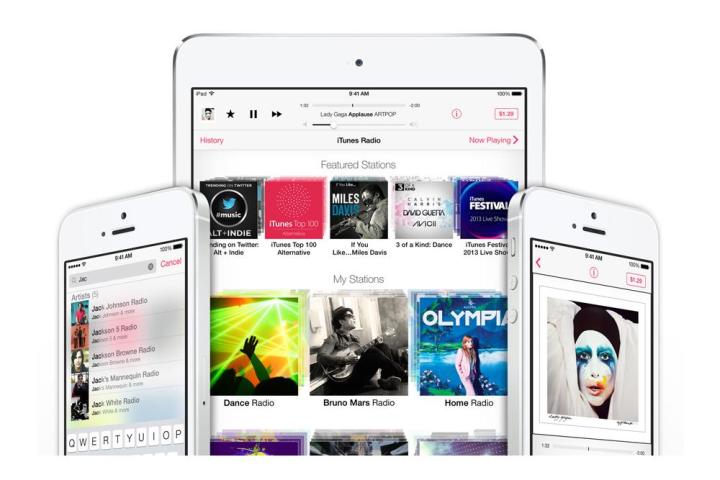
Apple launched iTunes Radio in Australia on Tuesday, taking its music streaming service beyond US shores for the first time since its launch five months ago.
We first heard rumors back in October that Apple was looking to roll out the free service in Australia, Canada, the UK and New Zealand “by early 2014,” so we’ll likely see it land in the remaining countries some time soon. It’s also expected to launch in Denmark, Norway and Sweden in the same time frame.
iTunes Radio, an ad-supported service that lets iDevice users and anyone with a Mac or PC create music ‘stations’ based on various elements such as artists, genres, and songs, is Apple’s answer to the likes of Pandora, Rdio and Spotify.
While Pandora currently only operates in three locations – the US, Australia and New Zealand – Rdio and Spotify are each available to users in more than 50 countries.
Apple may be able to roll out its service more quickly than Pandora as it has already inked deals with major record companies such as Universal Music Group, a factor that could put pressure on Pandora’s user base in the next year or so.
The Cupertino company touts iTunes Radio as offering “thousands of new songs every week, as well as serving up exclusive music from new and popular artists before you hear them anywhere else.” It said more than 11 million people tried out the service in its first five days of availability following its launch in September, though hasn’t offered any relevant statistics since then. However, with the iTunes store known to have around 500 million users, there is obviously huge growth potential for iTunes Radio once it starts landing in other countries. Pandora currently has 200 million registered users and 76 million monthly active users.
When iTunes Radio launched in the US, Apple executive Eddy Cue said in an interview the tech giant wanted to take its music streaming service to “more than 100 countries.” Tuesday’s roll out in Australia could signal a rapid expansion of the offering, a development that’s likely to cause a degree of concern among its rivals in a space which has become increasingly competitive in recent months.
[Source: Apple]

